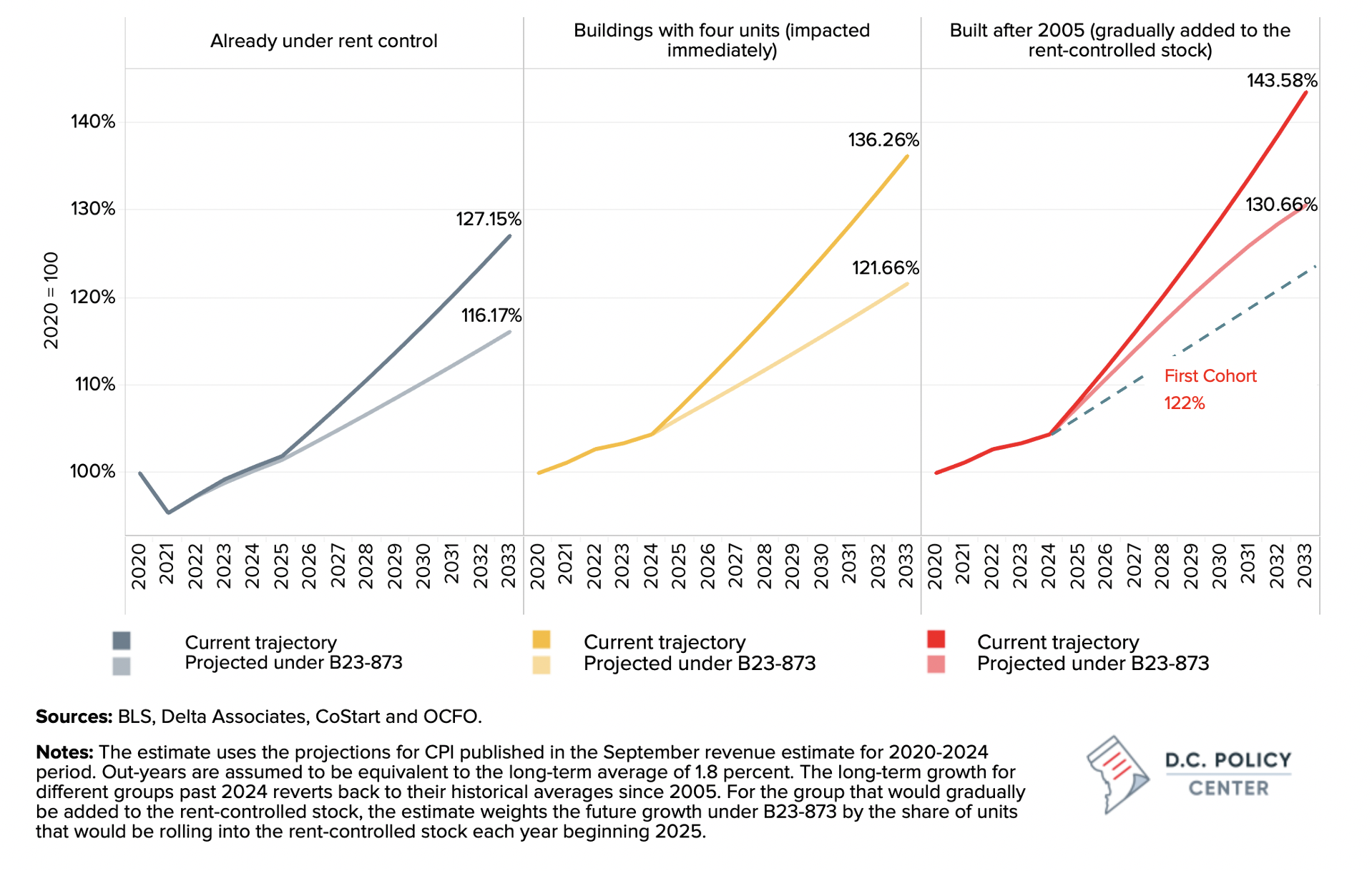As renter incomes rise in the District, the upward pressure on rents in rental housing is becoming stronger. This could make policies proposed by the “Reclaim Rent Control” platform seem appropriate, since the immediate impact would be to put more units under rent control and slower rent increases. But the lower rents in rent-controlled buildings are compared to market rate rents, the more likely that housing providers will reduce investments in these buildings, and the higher the temptation to take them out of the rental market entirely by converting them into condominiums. As this study has shown, in addition to lowering valuations and tax revenue, stricter rent control policies can end up aggravating housing affordability crises and increase resident displacement.
Further restricting housing provider income will frustrate the District’s affordability goals. The city has firsthand experience with how expensive affordability can be: The District provides substantial subsidies for the creation and preservation of affordable housing units in addition to a combination of federal and local rent subsidies. These subsidies, when combined, account for more than $175 million of the District’s annual budget. If the District were to go beyond an extension of the current rent stabilization law and enact stricter rent control laws, absent any other supports, the city would simply push the cost of subsidizing affordability from the government’s balance sheet to housing providers’ balance sheets—creating what is essentially an unfunded mandate. And the market will not passively internalize this—the mostly likely outcome will be fewer, and not more, rent-controlled units.
What can the city then do to slow rent growth to get renters into units they can afford?
- Recognize that housing is an ecosystem. The boundaries delineating different types of housing are more blurred than policy tools would imply. Market actors—renters, homeowners, housing providers, developers, and investors—respond to policy changes, and their actions collectively shape the housing market. For example, if more families want homeownership in the District, fewer single-family homes will be rented out. If housing production is impeded, the subsidies required to preserve affordable housing increase. Hence, a single policy lever that ignores how the entire housing system functions will rarely bring about the desired policy outcome.
- Make it easier to build. Rents will grow slower if there are more rental units, including rental housing for middle and high-income renters. First and foremost, the city’s policy efforts should focus on using land as productively as possible, specifically through less restrictive land use practices: increasing allowable density as much as possible and easing infill development. The city can also improve the regulatory environment by hastening the pace of the issuance of building permits, which at present creates a significant barrier for new development. And some of these changes will require changing commonly held beliefs about what creates value and beauty in a thriving, inclusive city.
- Keep the District attractive to investors. Even more units will be built if the District’s economy remains strong, its population and household count keeps growing, government services are reliable and the city’s financial management is sound, and its housing policies remove regulatory risk thereby giving comfort to investors that investing in the District is a safe bet.
- Create policies for small landlords. The District has 9,370 units in rental apartment buildings with three or four units, and B23-873 will immediately impact 2,150 small landlords that collectively manage over 8,600 of these units. These landlords have much smaller operating margins and are more likely to abandon their rental units under B23-873.
- Build a broader perspective for rental housing. The city must also think beyond multifamily rental apartment buildings when formulating its rental housing policies. The shadow rental market—the units built for ownership but rented out by their owners—fills a significant gap in meeting housing demand by offering a greater variety of units at a greater variety of prices across all parts of the District of Columbia. The District, with its commitment to ADUs and infill development, has chosen to pursue housing policies that depend upon current homeowner’s willingness to become landlords. However, absent from the current housing and zoning debates in the District of Columbia are a more comprehensive view of rental housing and a discussion of a more comprehensive rental housing policy. The District can reshape its rental housing policies to consider what would convince a large number of homeowners to become future landlords—and what would continue to convince current landlords to keep their units as rentals. B23-873, and its companions, completely lack this perspective.
<< Back: Main publication page | Next: Appendix
